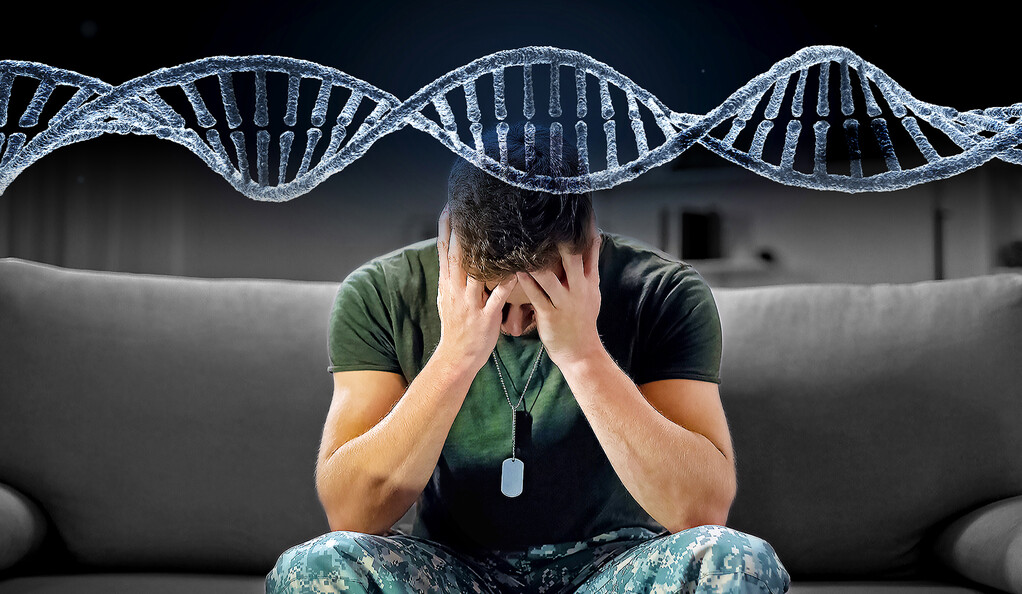PTSD is a mental health condition that has been increasing in recent years. However, the cause of this condition is still unknown. Some people believe that PTSD is caused by traumatic events, while others believe that it’s caused by genetics. This article will explore the topic of PTSD genetics and provide a comprehensive guide on how genetic factors can influence PTSD development.
Contents
What is PTSD?

PTSD is a mental health condition that can be caused by a traumatic event. The symptoms of PTSD can vary from person to person but may include flashbacks, nightmares, and intrusive memories. While there is no one answer as to whether PTSD is genetic, research indicates that a genetic component may play a role in some cases.
In this comprehensive guide on genetics and PTSD, we explore the possible genetic causes of PTSD and provide resources for people affected by the condition.
Genetics and PTSD
There is increasing evidence to suggest that PTSD may be a genetic disorder. This suggests that some people are more likely to experience PTSD after experiencing a traumatic event and that the disorder may be inherited. However, it is still not clear which genes are responsible for causing PTSD.
Currently, there is no single gene that has been identified as being responsible for causing PTSD. However, research into this area is ongoing, and future discoveries may lead to the identification of specific genes that are associated with the development of PTSD.
It is also important to note that not everyone who experiences a traumatic event will develop PTSD. Additionally, not every person who experiences PTSD will have a genetic disposition to the disorder.
Causes of PTSD

There is no single cause of PTSD, and the underlying biology is complex. However, some of the most common genetic factors that have been linked to PTSD include:
Trauma and Abuse
One of the most common causes of PTSD is trauma and abuse. This includes physical, sexual, and emotional abuse as well as witnessing or experiencing violence.
Stress
Many people who develop PTSD also experience intense stress before and after the traumatic event. This can be due to a variety of factors, such as a personal or family history of PTSD, being in wartime, or living in a dangerous environment.
Psychological Trauma
Psychological trauma refers to experiences that cause significant emotional distress. These can include things like being raped or mugged, witnessing a serious accident, or experiencing violence at work.
Diseases and Disorders
PTSD can also be caused by diseases and disorders such as major depression, bipolar disorder, and alcoholism. Sometimes symptoms of these conditions mimic those of PTSD, so it can be difficult to differentiate them.
Medications
Some medications, such as antidepressants and antianxiety drugs, can cause PTSD in people who are prone to the condition.
Treatments for PTSD
There is no one-size-fits-all approach to treating PTSD, as the condition can vary greatly from person to person. However, there are several effective treatments available that can help ease the symptoms and improve overall well-being.
One of the most commonly prescribed treatments for PTSD is medication. Antidepressants, such as SSRI antidepressants, are typically the first line of treatment for many people with the condition. They work by relieving symptoms such as anxiety, depression, and insomnia, and can often be effective in reducing flashbacks and intrusive thoughts. Side effects are usually mild but can include drowsiness, weight gain or loss, and sexual dysfunction.
Another common treatment for PTSD is therapy. Cognitive behavioral therapy (CBT) is a form of counseling that is typically very effective in treating conditions such as PTSD. CBT focuses on restructuring negative thought patterns and behavior and helps reduce anxiety and depression. One downside of CBT is that it can take a considerable amount of time to achieve results; often several sessions are required before significant changes are seen.
Other treatments that are effective in treating PTSD include relaxation techniques, exercise, and yoga. Relaxation techniques, such as meditation and yoga, can help reduce anxiety and stress. Exercise has also been shown to help reduce anxiety and improve physical health. Finally, treatment for PTSD can often involve support groups. These groups provide individuals with a safe place to share their experiences and feelings and can help provide relief from isolation.
Genetics and PTSD Resources

There is still much unknown about the genetic factors that contribute to PTSD. However, some research suggests that PTSD may be hereditary. What this means is that PTSD may be passed down from one’s parents or other relatives. This is only a theory at this point, but it’s one that scientists are exploring in more detail. If you believe that your PTSD might be genetic, here are some resources to help you learn more:
-The National Institute of Mental Health has a page devoted to understanding PTSD and genetics. This page includes information on how genetics can affect the development of PTSD, as well as links to other relevant websites.
-The Mayo Clinic has a helpful guide on diagnosing and treating PTSD based on a person’s unique genetics and history. This guide includes information on how to find out if you have PTSD based on your family history, as well as tips for getting treatment if you do have the condition.
-The website Genetics Home Reference provides detailed information about many different genetic conditions, including PTSD. This site includes comprehensive guides with explanations of the symptoms and treatments for each condition.
If you believe that your PTSD might be genetic, it’s important to talk about this with your doctor. He or she can help you find the right treatment and support system.
Proofs That PTSD Is Genetic
There is growing evidence that PTSD is a genetic disorder. Studies have shown that individuals who develop PTSD tend to have family members with similar symptoms. Additionally, research has found that people who have a history of psychological trauma are more likely to develop PTSD than those who do not.
Some researchers think that the genetics of PTSD may play a role in its development. They believe that certain genes can increase the likelihood of developing PTSD after experiencing a traumatic event. However, this is still a controversial topic and more research is needed to confirm these findings.
There are many reasons why PTSD may be genetic. For example, some people may be more susceptible to developing the disorder based on their personal history or biology. Additionally, environmental factors may also play a role in PTSD development.
Some people who develop PTSD may also have a genetic marker that increases their risk of developing other mental health problems, such as anxiety or depression. This is because PTSD is often associated with several physical and emotional symptoms that can lead to further distress.
Conclusion
After reading this comprehensive guide on genetics and PTSD, you will have a much better understanding of the factors that can contribute to developing PTSD. Now that you know more about your genetic makeup, it is up to you to make sure you get all the support you need to manage your symptoms. There are many resources available online and in person, so don’t hesitate to seek out help if needed.
Hope this article was of help to you! If you are suffering from mental health disorders, you may seek help from Therapy Mantra. We have a team of highly trained and experienced therapists who can provide you with the tools and skills necessary for overcoming mental health disorders. Contact us today to schedule an online therapy or download our free Android or iOS app for more information.


